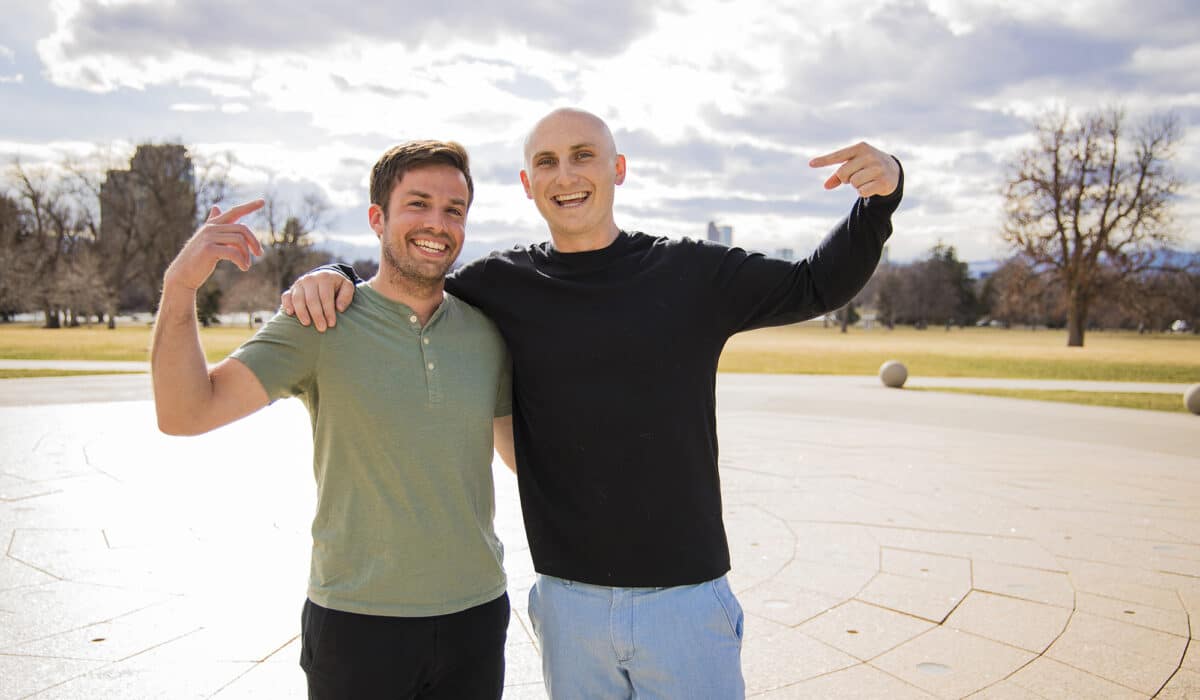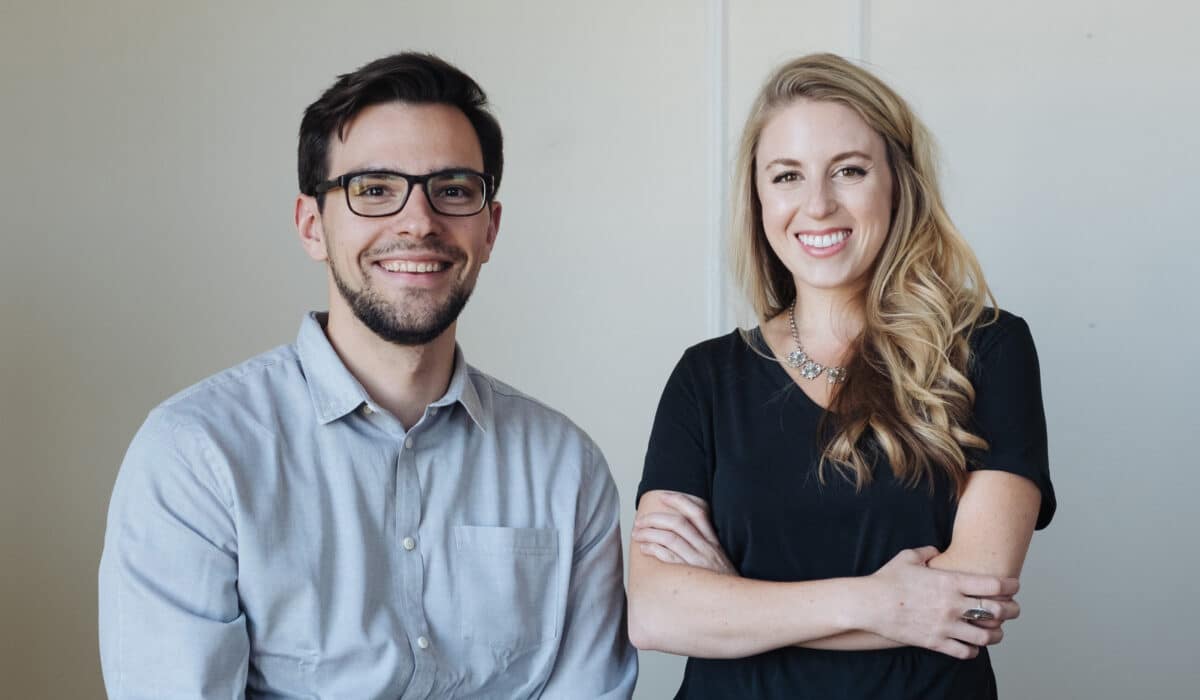Nathan Hirsch and Connor Gillivan had hired lots of freelancers on the big job boards like Upwork and Fiverr. They ran an Amazon dropshipping business, and they often needed freelance help.
But they grew to dread using those sites. “You posted a job and 100 people applied,” Hirsch said. It was mind-numbing going through them all, and landing on the right applicant was like finding a needle in a haystack.
So in 2015, the two founders, who met in a business law class at Quinnipiac University in Connecticut, invested $5,000 to launch Freeup, a freelance marketplace for pre-vetted talent.
On Freeup, you can hire a copywriter, graphic designer, web developer, digital marketer, virtual assistant, customer service representative, and more. And you don’t have to go through dozens of applications. The site’s selling point is that it pre-vets thousands of freelancers and introduces clients to the cream of the crop. It sends the hiring manager one to three qualified matches.
One of their early challenges was building out the software. To solve that problem, they invited a software developer to become a minority partner, then he built out the site.
“We worked with him before for years [on other projects] before offering him the partnership,” Hirsch said.
The developer owned about 15% of the company, which turned lucrative when the business sold.
Right off the bat when they launched Freeup, the founders invested heavily in SEO, publishing blog posts and creating keyword-focused web pages to draw traffic to Freeup. They had no office, no outside funding and no U.S. employees, instead building a team of 30 virtual assistants from the Philippines who worked on marketing, recruiting and SEO writing.
By 2017, they had five SEO writers publishing an assortment of blog posts honing in on long-tail keywords related to hiring freelancers or seeking freelance work. Their search traffic skyrocketed, and revenue hit 7 figures, Hirsch said in a LinkedIn post describing the sale.
By 2018, thousands of freelancers and employers had found Freeup via Google, and revenue hit multi-7 figures. The bootstrapped business kept growing, with 1,000 paying clients a week and a 25,000-person email list. Ahead of the sale, they reached $12 million in annual recurring revenue.
The best approach for taking Freeup to the next level
But Hirsch and Gillivan weren’t sure they were in a position to take Freeup to the next level.
They recognized that they didn’t have experience scaling a company past $20 million. They’d have to experiment and learn on the fly. To reach more freelancers and clients, they’d need to hire more full-time employees, increase advertising spend, and expand in new ways outside their expertise.
They weren’t exactly looking to sell – not yet, anyway. But then a customer of theirs reached out about purchasing Freeup. This was in 2019. It was an SEO agency called The HOTH, based in St. Petersburg, Florida.
“Their message was, ‘Hey, we like Freeup. We want to get into the freelancer space. We don’t start businesses, we buy businesses. Would you be interested in being acquired?’” Hirsch recalled.
By then, Hirsch and Gillivan had realized that Freeup’s continued growth couldn’t rely solely on them. At a certain point, the business would need a new approach to scale up further, and they weren’t sure that was a path they wanted to go down.
They wanted the business to survive in the long run, and they felt good about selling to a company like The HOTH, they said when publicly announcing the sale.
That didn’t make selling the company easy, however.
Why selling a business can be both exhausting and exciting
“What was due diligence really like? The truth is, it was the most stressful six months of our lives,” Hirsch told They Got Acquired.
They had a profitable business that they didn’t need to sell, but they got a life-changing offer that would mean financial freedom. Then the questions came.
“Every day, it felt like we were answering 20 questions about the business and sending 20 back to the owners,” Hirsch recalled. After that, the lawyers got involved, which slowed down the sale process. What was originally intended to be a 30- to 60-day sale turned into half a year.
“It wasn’t their fault or ours. The lawyers were just doing their job, protecting their client over every little thing,” Hirsch said. “For us, it was the biggest moment of our lives. For the lawyers, it was just another Tuesday.”
Months went by, and Freeup’s founders often woke up wondering whether the deal would fall through.
“On top of that, we had a business to run. Connor and I had to keep each other focused, which was the hardest part,” Hirsch said. “If the deal did fall through, we didn’t want to go back to a business that had been neglected for months.”
Near the end, there were a few final things that the two sides had not agreed upon. Hirsch called the buyers directly, bypassing the lawyers, to find a compromise. They left that call with a deal in place – then all met in person to sign.
“Finally it was done,” Hirsch said. “We emotionally had a Zoom call with our team to tell them the news, and went out to lunch to celebrate with the buyers. … It was exhausting, exciting, stressful and fulfilling all at the same time.”
What’s next for these founders after their exit
After the sale, the founders’ original plan was to take a few years off, but the height of the COVID-19 pandemic dissolved their plans to spend time traveling. Stuck at home with nothing to do, they decided to start building businesses again, but with a different approach this time.
“No more hustle, no more doing things we don’t want to do,” Hirsch said. “For four years, I worked my butt off. Whatever it took to grow FreeUp, we did. Working nights, weekends, four podcasts a day, constant travel – but it was worth it when we exited.”
They eliminated work travel – no more conferences. They reduced the number of podcasts they appeared on. Most importantly, they hired operators to run new businesses. Hirsch moved from Florida to Colorado and had a son.
“Connor’s and my goal now is to grow a portfolio of businesses that don’t require us to hustle,” Hirsch said. They’re working on TrioSEO, an SEO blog writing service, and AccountsBalance, an online bookkeeping agency.

